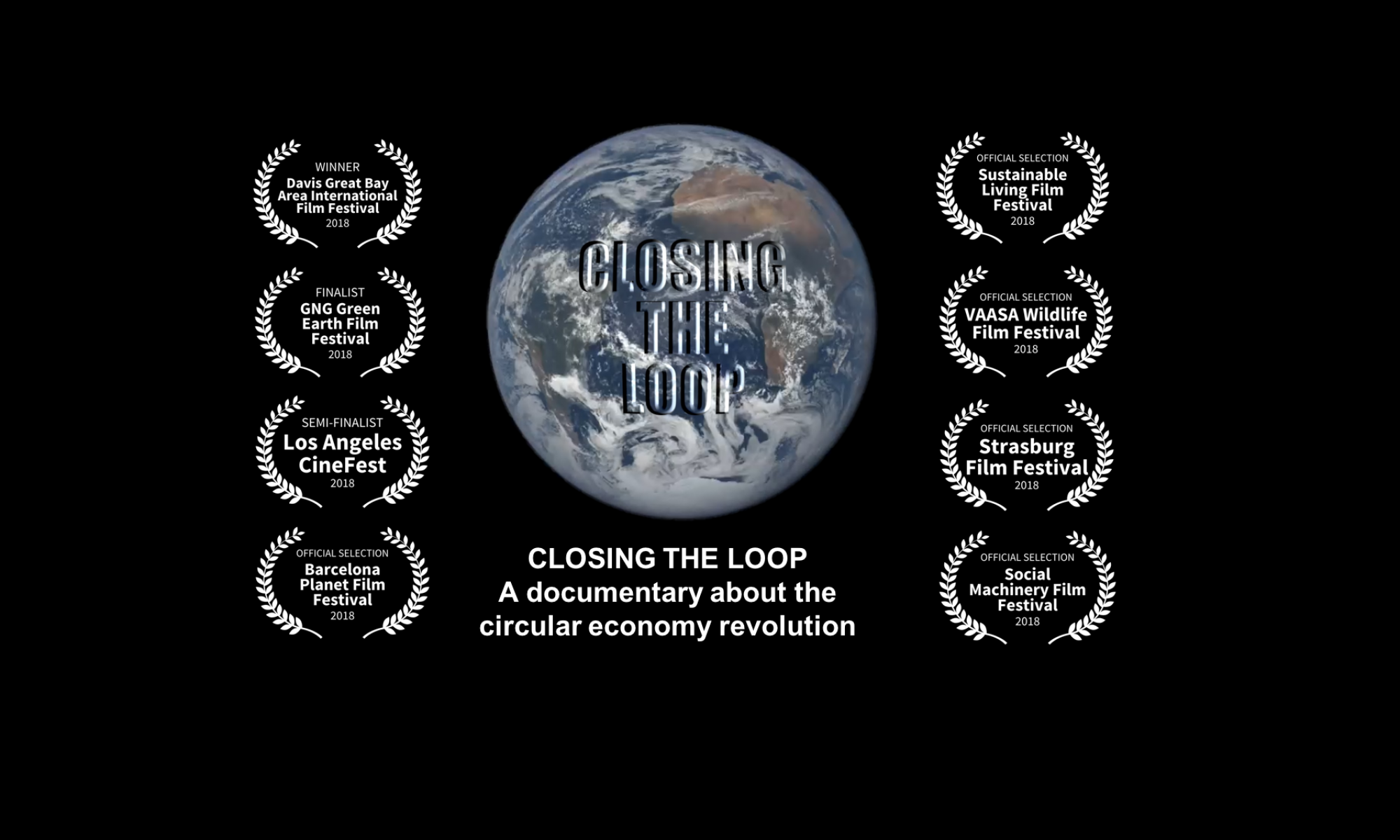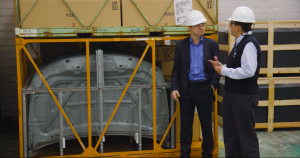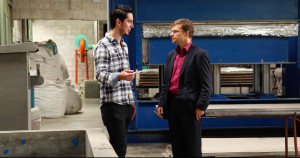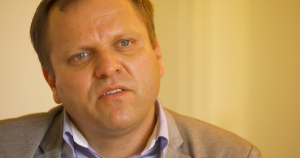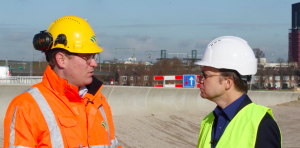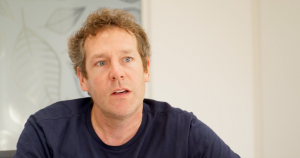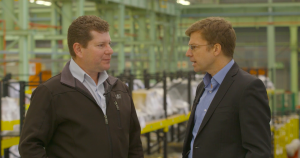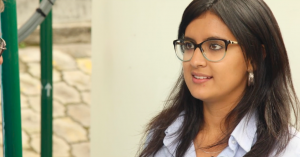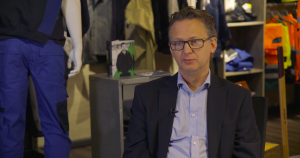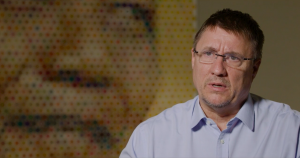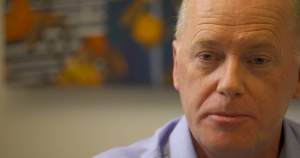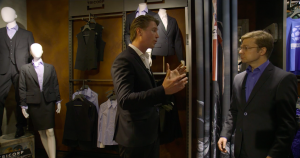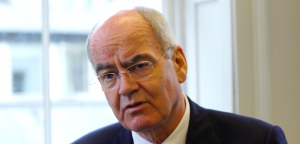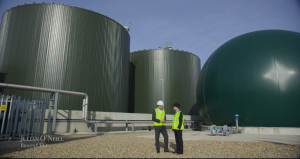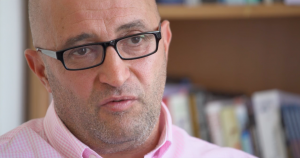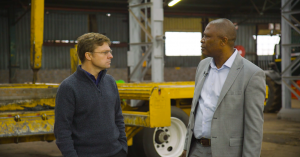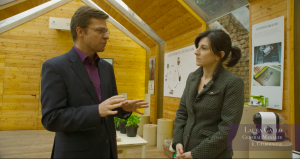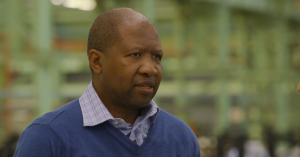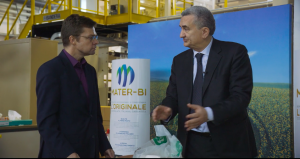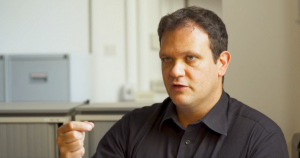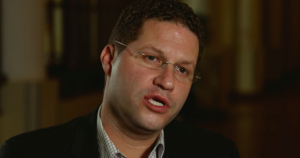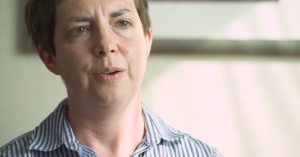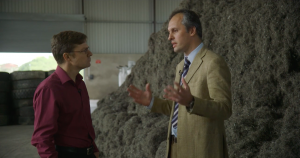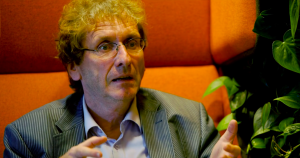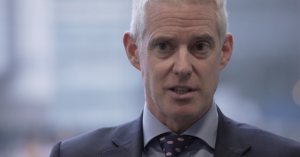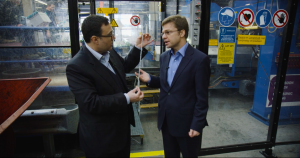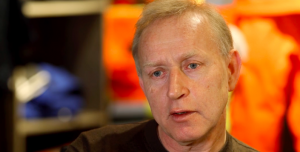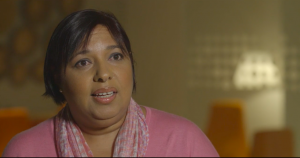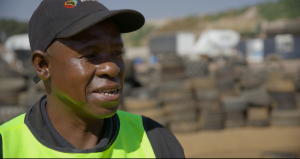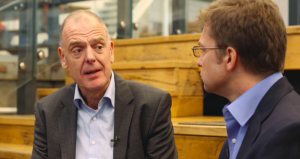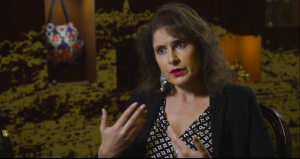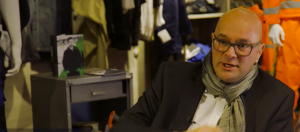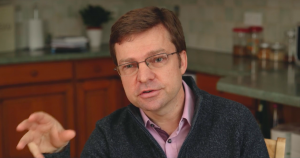Adolfo Gangotena, Environmental and Sustainability Representative, GM Ecuador
“99% of the waste from the company [is] totally reusable or recycled – it means all the material has a solution or has a partner who makes [something] with the material.”
Andres Saenz, Sales Executive, EcoPak
“We’re turning waste into something amazing. … It’s amazing how versatile Tetrapak really is … We can make pretty much any product that’s using wood or cement or non-renewable materials and make something even better.”
Attila Turos, Lead: Future of Production, World Economic Forum
“Circular economy is an economic system that is regenerative by design. … The linear economy is the prevailing model because simply the world is just not in tune or necessarily aware of the circular model and it’s economic and societal benefits.”
Bjorn Smeets, Former Manager: National Procurement, Dura Vermeer
“This is the idea of urban mining: use what the waste that you have, reuse it and we also think reuse it really nearby where you are mining it.”
Christopher Davis, International Director of Corporate Responsibility and Campaigns for The Body Shop
“We don’t have a choice but to do this. This is imperative for our survival. … If you think about starting a business today, designing a business around a circular economy philosophy, ultimately it’s going to give you better returns in the long run.”
Dawid Neinaber, Operations Manager, Barloworld Equipment
“You take a long-term view on it when you invest in something like this – you think beyond today, you think the next 20, 30, 40, up to maybe a hundred years.”
Fernanda Chavez, Environmental Engineer, GM Ecuador
“You can keep going with industrial processes while you take care of the environment and while you do something to solve problems.”
Hendrik Stiksma, Former Commercial Director, Tricorp
“It’s a big step because we are used to thinking linear – produce, sell, wear, stop, throw it away – and now we have to go take it back to our production countries, so that’s another way of thinking.”
Hermann Erdmann, CEO, REDISA
“I am frightened that my generation will be the first generation in the world which will leave my children and grandchildren an earth which they might never be able to fix. … Creating in the developing countries a cleaner environment is game-changing to the whole future of our people.”
Ian Ellison, Senior Associate, Cambridge Institute for Sustainability Leadership
“If you’re getting very significant reductions in pollution and waste, if you’re using waste material as your fundamental building blocks, then you ought to be able to reduce costs and also improve output from the same resource base.”
Jan-Willem Weebers, Co-Founder, WearEver
“If you look at the durability, this material is way stronger and therefore will last way longer. … We’re entering resources once and creating no debris at the other end for 40 years.”
John Elkington, Executive Chairman and Co-Founder, Volans Ventures
“Part of our problem in moving towards circularity is most people neither see the importance of it nor exactly know how to do it.”
Julian O’Neil, Former CEO, Biogen
“If I look at where food waste goes today, there is still a huge amount that goes to the landfill [and] to incineration. … So we’ve got to do more, there’s still millions of tons out there to go after.”
Khaled Soufani, Director: Circular Economy Research Initiative, Judge Business School, Cambridge University
“A great positive impact of a model like the circular economy would be innovation – it could be disruptive innovation, in a positive way.”
Khohatso Moloi, CEO, Waste Beneficiation
“You are not only looking after the physical environment, but you are looking at the health and wellbeing of the surrounding communities. So for me those are the reasons that motivated me and that excite me about this business.”
Laura Gallo, General Manager, Il Giardinone
“We take the waste [from the] production of food – the coffee grounds – and we [it] use to produce food again; we use [it] to produce mushrooms, very good mushrooms.”
Lesibana Ledwaba, Executive Director for Operational Transformation and Strategy, Barloworld Equipment
“Through remanufacturing we are able to reduce the cost of doing business, because we are able to give the customers components at a fraction of what it would cost to get a new one.”
Luigi Capuzzi, Director of Research & Development, Novamont
“[Mater-Bi is a completely biodegradable [plastic] material that can be transformed in several different products – and these objects can be used for different applications and then can be disposed in an industrial composting plant.”
Mark Esposito, Teaching Faculty on Business, Society & Government, Harvard University
“Circular economy not only is good for us, but is also financially very strong to generate competitive advantage.”
Mauricio Rodas Espinel, Mayor, Quito City
“We have a great opportunity to go ahead and make the local government, make the city, the municipality, as the main actor in this process.”
Maxine Perella, Sustainable business journalist
“The circular economy basically sexes up waste, it makes it quite funky. … [It] represents our best chance of being able to consume comfortably and maintain our current lifestyles. The alternative would be to go back to the dark ages and no one wants to do that.”
Mehran Zarrebini, CEO, Mathe Group
“Sustainability and the environment provides us with opportunities … from a cost perspective, from a brand perspective, from developing products that utilize a high content of recycled materials. So essentially it’s created a platform for us to innovate.”
Michael Braungart, Academic Chair, Cradle-to-Cradle for Innovation & Quality, Rotterdam School of Management
“We can now use 30 years of climate change as a true innovation engine. We can reinvent all our materials to be ‘good’ from biological or technical systems. We now have the expertise. Together, it’s now time to act.”
Mike Barry, Director of Sustainable Business (Plan A), Marks and Spencer
“We cannot be satisfied until tens of thousands of companies, hundreds of thousands of companies, servicing hundreds of millions of customers are really doing circular. … It is not enough to stay tinkering for next 10 years. We need deliver scale, quickly.”
Ramon Arattia, Former Sustainability Director, Interface
“There are many opportunities in the waste from other industries. If other industries are not clever enough to recycle their own waste, we will look at what is the potential waste which is interesting for us.”
Rien Otto, Founder and CEO, Dutch Awearness
“If we really don’t change our mindset I think it will be the end of the world. … I think that the circular economy is all about co-creation, working together, bringing all the innovations and knowledge together in one chain and being responsible.”
Stacey Davidson, Executive Director, REDISA
“We do know that through pushing for the circular economy, we are able to change lives. We can never underestimate the power of the social impact that you’re achieving through the circular economy.”
Stanley Mangoegape, Midrand Depot Manager, REDISA
“My life has changed completely … Waste is worth something if people can put their mind into it.”
Ton Van Keken, Senior Vice President of Operations: Europe Middle East and Africa, Interface
“There are a lot of customers that value sustainability … I think it’s pretty clear that companies with a strong sustainability vision are often the more successful companies.”
Verónica Arias Cabanilla, Secretary of Environment, Quito City
“It’s crucial to be sensitive, to be passionate about the things you do and sustainability is the one that is a vocation – it’s a grain that you can add to see that natural resources can be conserved for future generations, for our kids, for our city, for our planet.”
Willem Eimers, Account Manager, Tricorp
“We are all in a rat race of consuming, producing and not thinking, grabbing, eating, drinking, spoiling. Of course, we still have to eat and we must drink, but we have to do it with more awareness.”
Wayne Visser, Chair, Professor and Director, Sustainable Transformation Lab, Antwerp Manager School, Fellow, University of Cambridge Institute for Sustainability Leadership
“If I look at the speed and the scale of the changes that are happening and I look at the people working on these problems and I look at the breakthroughs in technology that we’re seeing right now, it’s very hard not to be optimistic.”
“The only thing that’s enough is redesigning the industrial system – literally a new Industrial Revolution, closing the loop. This is no longer a dream, this is no longer a fantasy. We’re not talking about a utopia, we’re talking about something that is absolutely happening right now.”
“We don’t need new technologies, they’re already there. What we need is new thinking and these companies demonstrate that we can bring that new paradigm – that shift to actually change the world, today.”
“The only way that this works is if sustainability, circular thinking, closing the loop, is applicable to everyone. This is not some luxury for the rich and wealthy and privileged.”
“We need to think about this revolution that we’re going through as a way in which we can make our mark on this earth – a positive footprint. It’s up to us to be part of the solution, and actually we’re all looking for meaning in life. Well what could be more meaningful than making life flourish rather than destroying life. We can buy into this mission, we can make it our personal mission to be part of the solution. At the end of the day, what do you want to tell your grandchildren? Were you part of the problem or were you part of the solution? Do you want to be part of the decline of civilization or do you want to be on the side of hope, of reinvention, of recreation, of the kind of life and the kind of earth that we were really meant to enjoy? The choice, as always, is yours.”
